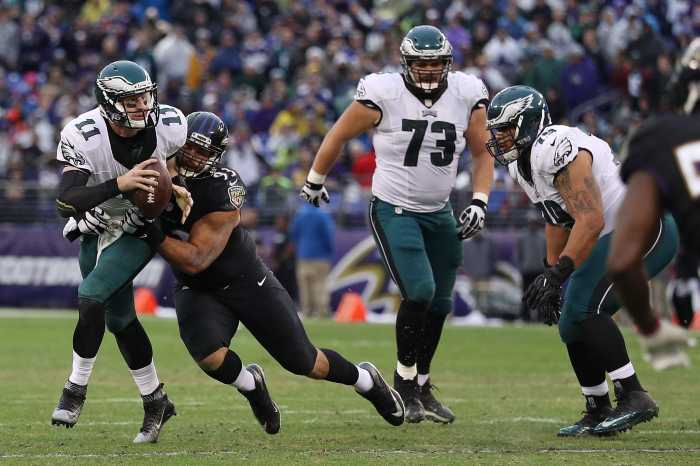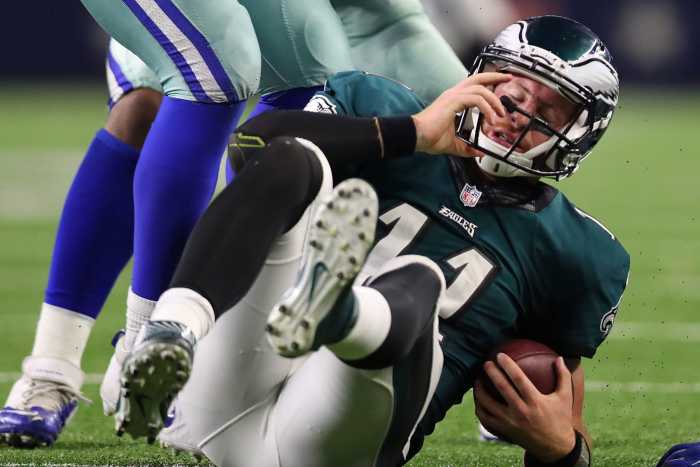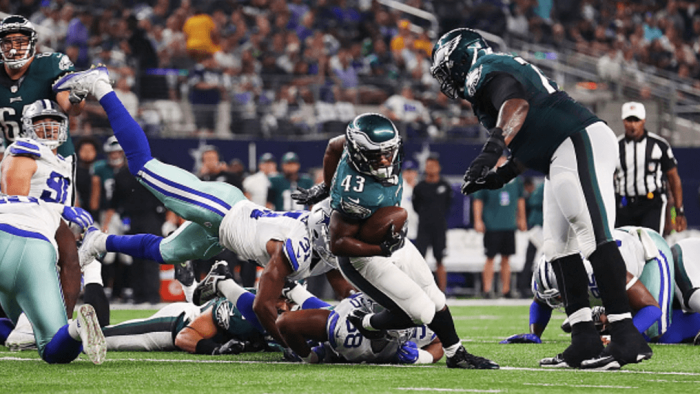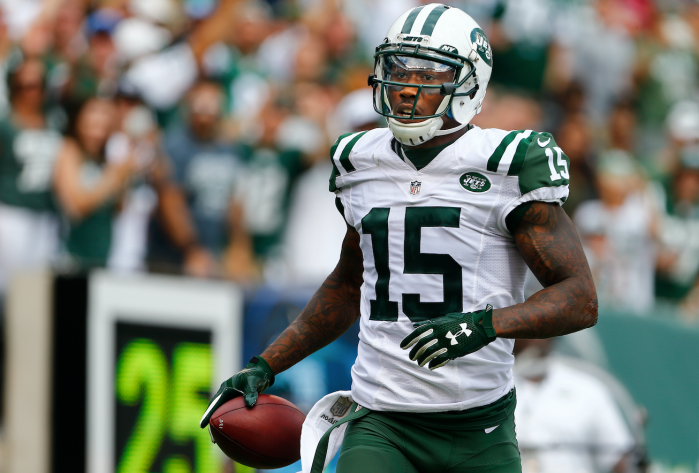Traumatic head injury has become a hot-button issue for the sport of football.
Seemingly countless stories have been written about former NFL players whose lives have been shortened or worsened by head injuries that are a consequence of the violent nature of the game.
Overshadowed are other aspects of mental illness which afflict people in all walks of life. NFL players are not immune to psychological disorders as the news media highlighted this week in reporting the story of Eagles offensive lineman Brandon Brooks. Brooks — rated by Pro FootballFocus as one of their top 25 linemen this season — has missed two of the Eagles last three games due to severe stomach issues. The cause was not a virus or infection. The symptoms were stemming from his mind. “I wanted to get to the bottom of what’s going on,” Brooks told media members this week. “Basically, I found out recently that I have an anxiety condition. What I mean by anxiety condition [is] not nervousness or fear of the game. “What it is, is that I have like an obsession with the game. It’s an unhealthy obsession right now and I’m working with team doctors to get everything straightened out and getting the help that I need and things like that.” Brooks signed a five-year, $40 million contract in the offseason, and has played football his entire life. The 27-year-old guard bravely came clean about his condition after the Eagles brass made sure to protect his privacy in the weeks during his absences from the team’s games — all losses. There is no difference between the percentage of professional, college or high school athletes battling anxiety than the regular population said Dr. Joel Fish, director of the Center for Sports Psychology in Philadelphia. “It’s courageous that he raised [the issue],” Fish said.”It is to all of our benefit that we normalize talking about it. To me it’s very encouraging he has played through college and has played six years in the pros. He’s had the ability to control this, so he’s been able to succeed at the highest levels. If it had been something more severe and prolonged — if he hadn’t already developed coping strategies to deal with it, hewouldn’t have been elevated to this level.” Professional sports is a multibillion dollar industry. Every move a professional athlete makes is scrutinized by millions of people. Brooks may be one of the few NFL players who has come out publicly with an anxiety issue, but there’s certainly no shortage of them (Ricky Williams, who’s career ended early due to anxiety, for example)— whether we know their names or not. “To be able to compete, let go of mistakes and have your performance analyzed by millions of people —that’s part of an athlete’s growth,” Fish said.”I think in terms of my work, whether someone is a rookie, a veteran, part of the athlete is continually learning how to improve the technical part of the game and the mental part of the game.” The good news is, unlike when a football player has a torn ACL, talking about it can actually really help, he said.
“His disclosure and talking it public and being honest about it — that can bring relief, too.”
Brooks was a full participant in practice this week, ahead of the Eagles’ tilt with the Ravens in Baltimore Sunday.
Eagles’ Brandon Brooks ‘courageous’ for open fight against anxiety
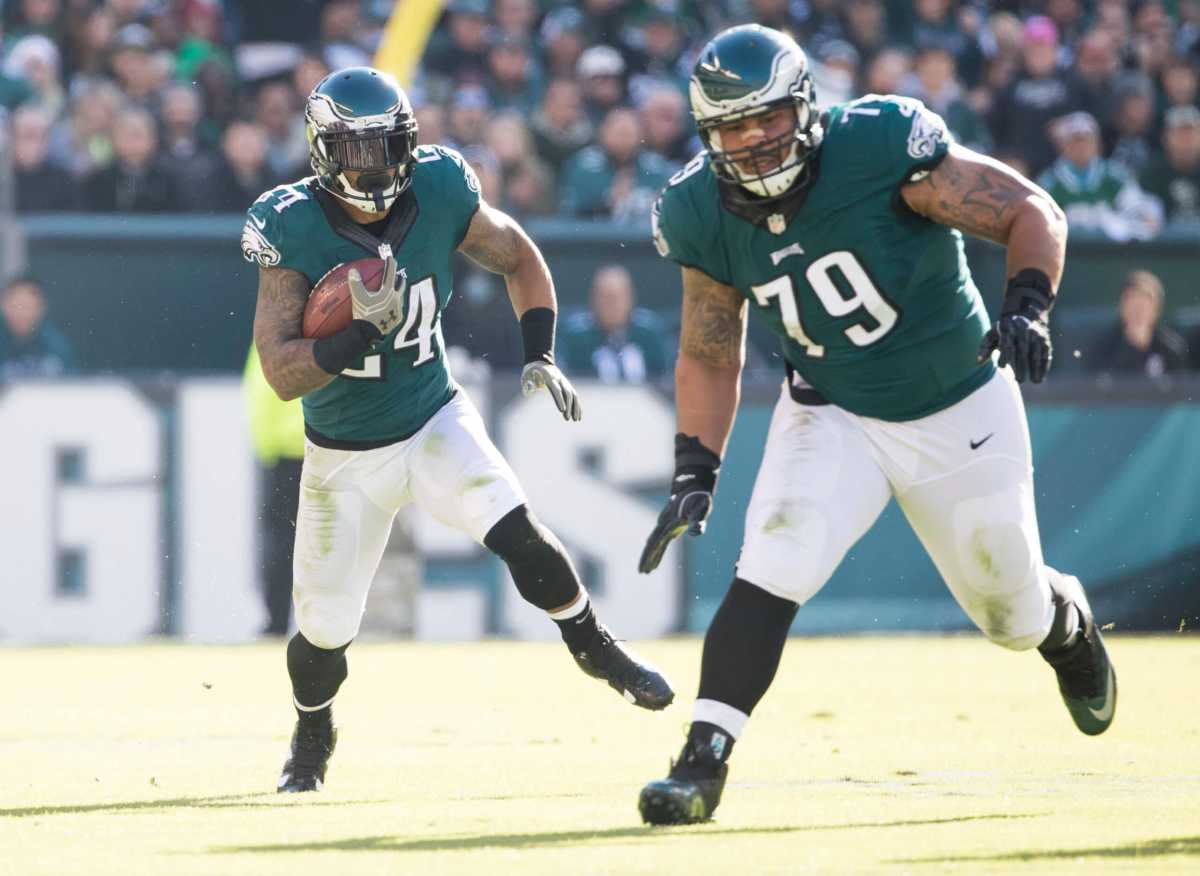
Getty Images



